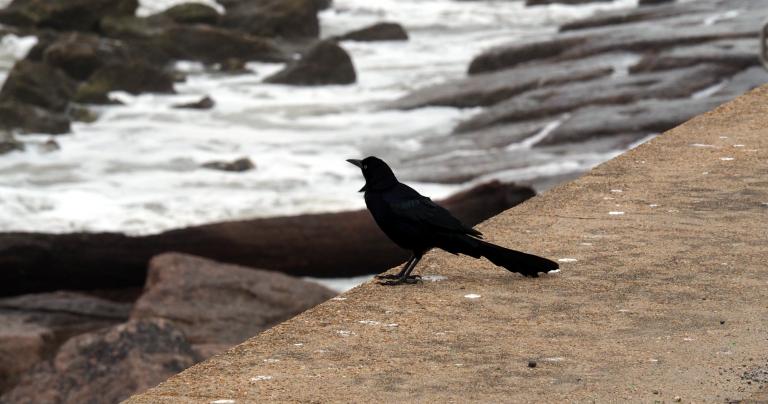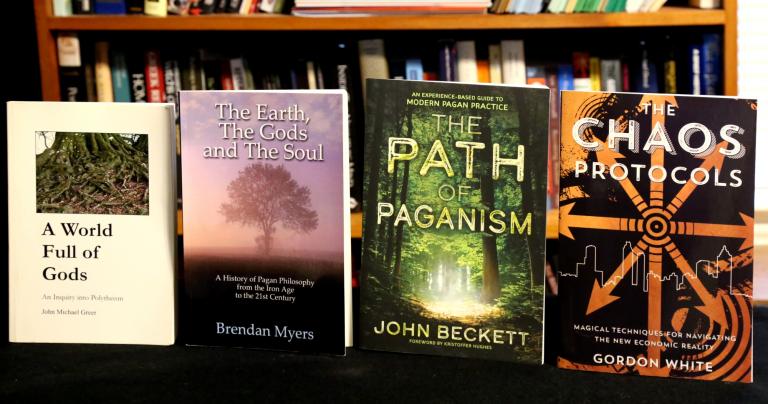Here are the final questions for this month’s Conversations Under the Oaks: Stoicism and the Witches’ Pyramid, dealing with toxic beliefs in the Pagan community, my favorite Pagan book, and my toughest experience as a Pagan leader.
What has been your toughest experience emotionally as a leader in the Pagan community?
That’s easy to answer and hard to deal with.
It’s having to keep separate sets of friends because people I once stood in circle with no longer speak to each other.
In some cases there was a simple disagreement – in others there was some sort of bad behavior going on. Maybe something that would classify a person as a “weed” or maybe something that rises to the level of toxic behavior. Sometimes there was fault on both sides, other times it really was one person’s fault.
In most cases attempts at reconciliation were made. In all of them (that I know about) the reconciliation failed, because one side or both put “getting the other person to say that I was right” ahead of repairing the relationships and continuing the sacred work.
And then the high schoolish behavior began: “if you’re friends with them you can’t be friends with me.”
Truly abusive people need to be named and isolated. But “abusive people” and “people I can’t get along with anymore” are two different things, and too many Pagans can’t seem to tell the difference. I’ll make my own determinations, and if you make me choose I won’t choose you. Friends are too precious to throw away.
I have boundaries even for close friends, and I respect that other people draw their own boundaries differently than I do. Sometimes hard choices have to be made.
But that doesn’t make them any easier to handle.
What are your thoughts on balancing solidarity within the Pagan community and having to confront toxic but deeply-held beliefs?
There can be no accommodation of racism, fascism, homophobia, transphobia, or any other form of identity-based hatred. “Deeply held beliefs” are no excuse for Christians to discriminate against gay people and they’re no excuse for Pagans to attack or denigrate people who don’t look like them.
I can work with people who have different beliefs. I’m a polytheist, but I’m happy to share a CUUPS group with pantheists and non-theists. I’m not inviting the non-theists to private ecstatic devotional rituals, but they’re still valued members of the wider Pagan community. As a UU, I’m fond of early Unitarian Ferenc Dávid (1520-1579) who (possibly) said “we need not think alike to love alike.”
Respectful disagreements are one thing. Expressing hatred, mocking those who are different, and steering people to religious traditions based on race are another matter entirely.
Ultimately I don’t care what you believe. I care how you act. And if you attack people based on their identity I don’t want you in my community.
What is your favorite Pagan book?
Would it be too much to say my own? I wrote The Path of Paganism because there was nothing like it available. It’s not intended to be a first book on Paganism, but I hope it will be many people’s second or third book. And if it is someone’s first book, at least they’ll get a good foundation.
Beyond that, picking just one is hard. A World Full of Gods by John Michael Greer was extremely helpful in my shift from “One God/dess With Many Faces” to true polytheism. I probably refer to The Chaos Protocols more than any book on my shelves, but I’m not sure it’s really a Pagan book. The Earth, The Gods and The Soul by Brendan Myers was perhaps the most educational, and the most enjoyable to read.
I’ve narrowed several hundred down to four – that’s as far as I can go!
What do you see as a major opportunity for CUUPS in the coming year?
I’m not sure I’m the right person to answer that question. I haven’t been a CUUPS leader locally for over a year and nationally for four. So I’m not plugged into the current situations and trends. But I can say there are two areas where CUUPS – both local chapters and the national Board – always needs to work.
The first is forming and maintaining good, healthy relationships with local congregations. A CUUPS chapter should be an extension of a UU congregation. That doesn’t mean everyone in CUUPS needs to be a Sunday morning regular. It does mean everyone in CUUPS needs to support the congregation and Unitarian Universalism in general, one way or another.
The second is promoting spiritual depth in Pagan activities. If you’re going to do a Wiccan ritual, do Wicca. If you’re going to do non-theistic Nature worship, do that. If you’re going to honor a deity as part of your ritual, give Them the respect due a guest of honor and don’t try to plug Them into a script that has nothing to do with Them. Whatever you do, do it in depth. Pagan mash-ups never work well.
How does Stoicism compare to The Witches’ Pyramid as a foundational philosophy for intent and purpose?
This strikes me as an apples-and-oranges sort of comparison. Stoicism is a philosophical system. The Witches’ Pyramid is a magical technique.
Referring again to one of my favorite Pagan books, in The Earth, The Gods and The Soul Brendan Myers says “Stoicism does not teach that the emotions are bad, but it does teach that there’s no point getting upset or afraid of that which you can neither affect nor avoid.” It is neither resignation nor suppression of emotion, but enjoying what we can in spite of what we find unpleasant or painful. When I say “we don’t have to like these things, we just have to deal with them” that’s an expression of Stoicism.
I don’t consider myself a Stoic (far from it) but I do find this approach to be helpful.
The Witches’ Pyramid was first articulated by the 19th century French occultist Eliphas Levi. Jason Mankey calls it a magical philosophy. I don’t think there’s enough to it to call it a philosophy – I see it more as a method. The Witches’ Pyramid is to Know, to Dare, to Will, and to Keep Silence.
In order to work magic, you have to know what to do and how to do it. You have to dare to reach for it, to seize it, to steal fire from the Gods. You have to have the will to do what’s necessary and to keep going when things get hard. You have to have internal silence to be able to do all that, and you have to be quiet about the whole thing so you don’t weaken the magic before it’s done.
I can see how someone who follows a Stoic path could use the Witches’ Pyramid to help change things that can be changed, but beyond that I don’t see a lot of connections between the two.






















